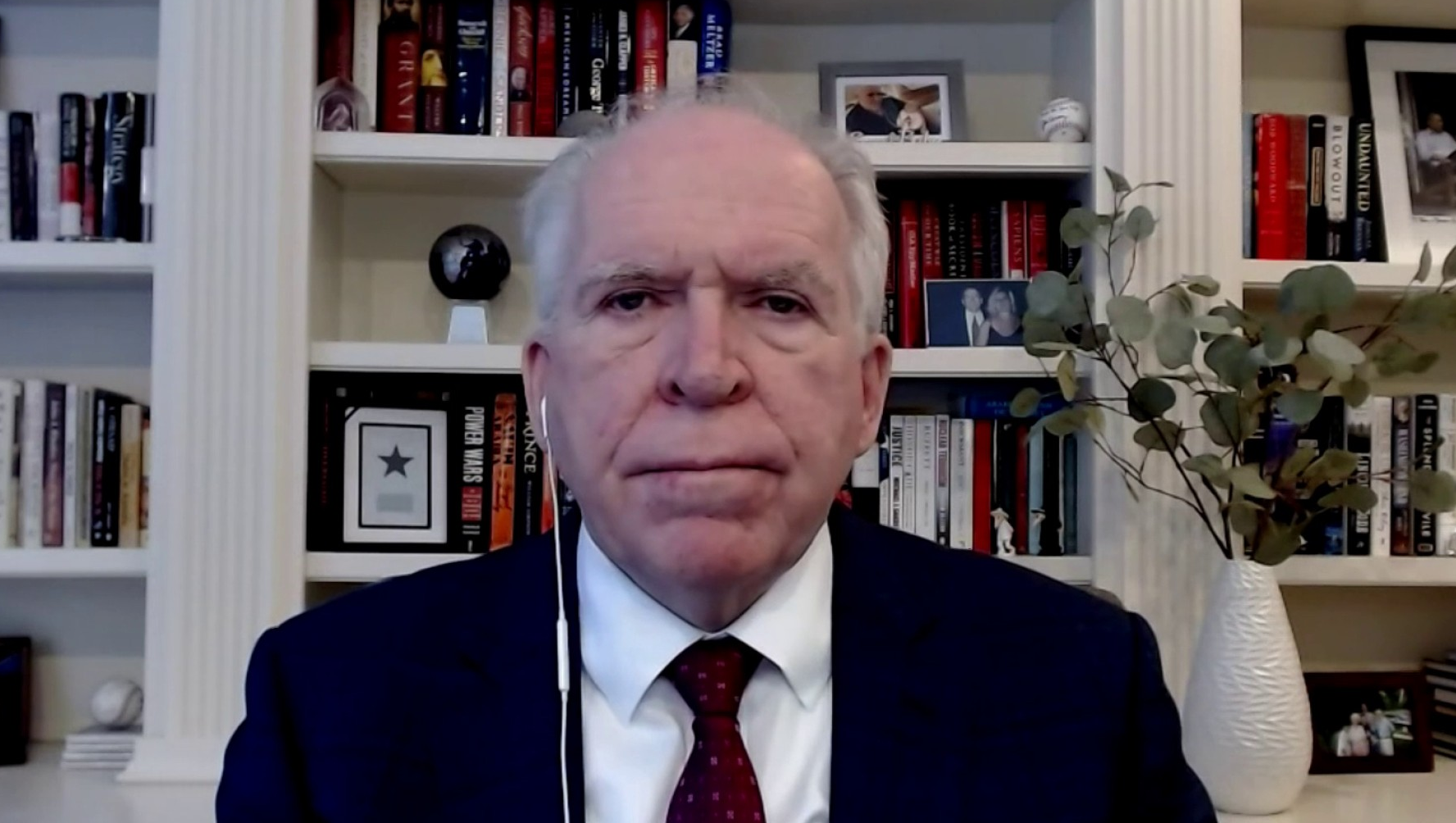In a fiery MSNBC segment that left viewers both shocked and amused, former CIA director John Brennan lost his cool over President Trump’s decision to revoke his security clearance. Brennan, whose outspoken criticisms have long drawn accusations of “Trump Derangement Syndrome,” went ballistic during the interview, decrying what he claims is a politically motivated attack on former intelligence officials.
The controversy centers on an executive order issued by President Trump that targeted individuals involved in a high-profile letter concerning the Hunter Biden laptop story. According to the order, at least 51 former intelligence officials—Brennan among them—collaborated with the Biden campaign in the closing weeks of the 2020 presidential race to discredit reports that Hunter Biden’s laptop was left at a computer repair shop. The letter suggested that the story bore the hallmarks of a Russian disinformation campaign, and it was reviewed by the CIA’s Prepublication Classification Review Board, ensuring that senior CIA officials were aware of its contents. Multiple signatories, including Brennan, held active security clearances at the time and maintained contractual ties with the agency.
Trump’s executive order denounced the letter as an abuse of public trust. It stated that federal policymakers must be able to rely on analysis from the Intelligence Community without fear that it has been tainted by politically motivated maneuvers. “The signatories weaponized the credibility of our intelligence institutions to manipulate the political process and undermine democratic institutions,” the order read, comparing the breach of trust to actions more typical of a third-world regime. To address this alleged abuse, the order called for the revocation of any active or current security clearances held by those involved in what it described as misleading and inappropriate political coordination with the Biden campaign. Notably, the order also mentioned former official John Bolton, but Brennan was squarely placed in the targeted group.
Appearing on MSNBC soon after the revocation, Brennan defended the purpose of his security clearance. “The clearance wasn’t for my personal benefit—it was solely for the government’s advantage,” he explained. “It enabled me to be available for any classified discussions that might be necessary with the CIA or other agencies. That’s why I maintained it long after leaving government service.” His comments, however, did little to quell his frustration. In a series of pointed remarks, Brennan accused Trump of misrepresenting the contents of the contentious letter. “The executive order falsely stated that we suggested the Hunter Biden laptop story was Russian disinformation. In fact, we described it as having all the hallmarks of Russian information operations—including the dumping of accurate information—which is a critical distinction,” he argued.
Brennan went on to claim that the revocation of his security clearance was less about national security and more about retribution. “This was nothing short of a political vendetta,” he said, asserting that Trump was using the executive order to punish those who have openly criticized him over the years. According to Brennan, the move was not rooted in any legitimate concern for safeguarding intelligence processes but was simply an effort to undermine his credibility and silence dissent within the intelligence community.
The backlash from Brennan’s appearance has been swift and polarizing. Supporters of the former CIA chief view his impassioned defense as a courageous stand against what they see as an unfair targeting of intelligence professionals. Critics, however, argue that his reaction is emblematic of the hyperbolic rhetoric that has come to define the post-Trump political landscape. Regardless of where one stands on the issue, Brennan’s outburst underscores the deep divisions within the national dialogue over the politicization of intelligence and the appropriate use of executive power.
This incident is yet another chapter in the ongoing saga of political infighting that has dogged American governance in recent years. It raises critical questions about the role of former intelligence officials in political discourse and the limits of executive authority when it comes to managing national security credentials. While Brennan’s security clearance has now been officially revoked, the debate over whether the decision was a necessary corrective measure or a politically motivated overreach is likely to persist for some time.
For viewers eager to see the moment when Brennan’s emotions reached a boiling point, the full clip of his explosive interview is available to watch. His vehement defense of his actions and his scathing critique of Trump’s executive order provide a revealing glimpse into the ongoing battle over the politicization of American intelligence.

